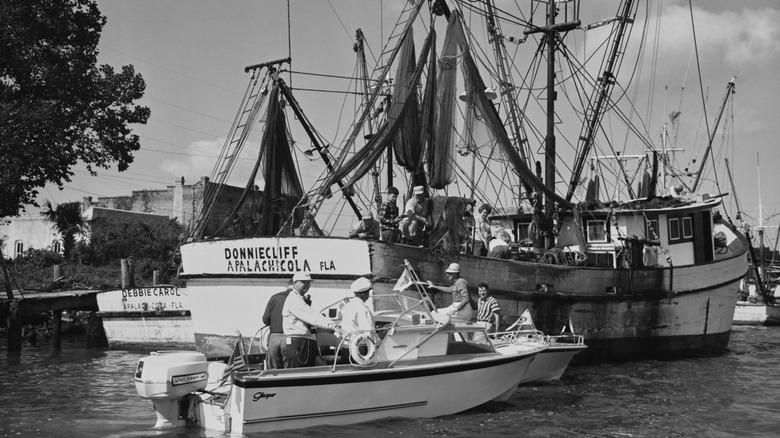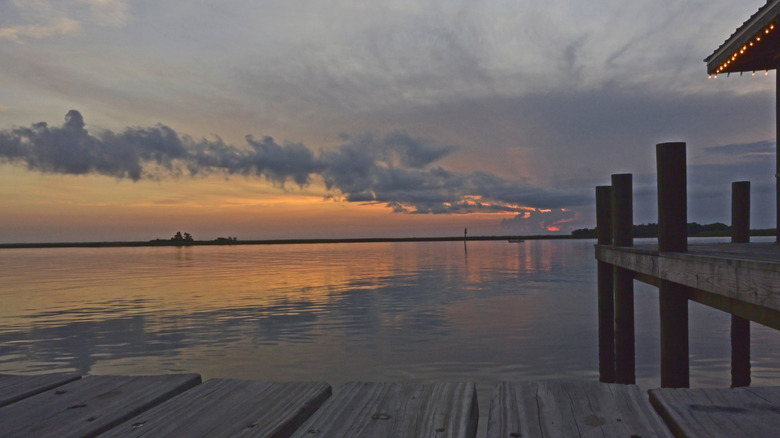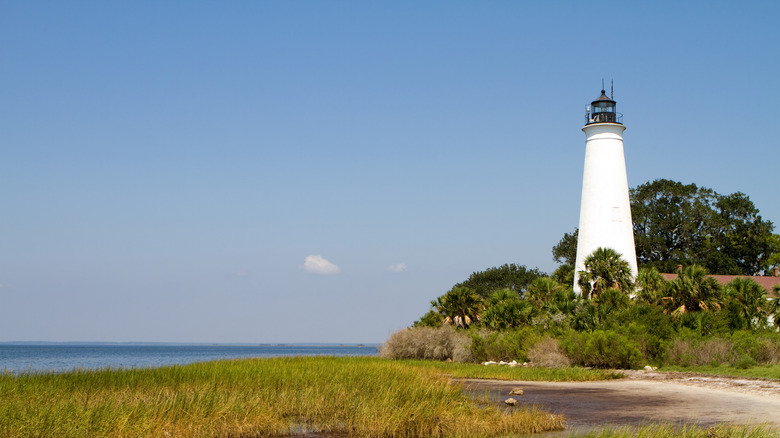Apalachicola, Florida’s must-see under-the-radar city, awaits about an hour and a half from Tallahassee. Tucked away along the Forgotten Coast, this port city is a gold mine of history and natural beauty. If you haven’t heard of it, we’re not surprised. It’s often hailed as the best-kept secret in all of Florida. This coastal town is steeped in a complex and somber history, reflecting the legacies of Old Florida, including its connections to slavery. Visitors are given the chance to delve into the past and contemplate the historical events that have sculpted the region. The streets of Apalachicola are adorned with a blend of 19th-century antebellum and Victorian architecture, with each building narrating its unique story.
Beyond its historical depth, Apalachicola’s natural landscape offers an equally compelling narrative. Perched at the mouth of the Apalachicola River and Bay, the town is situated in a unique ecosystem ideal for outdoor enthusiasts. A haven for seafood lovers, Apalachicola Bay is known to produce some of the finest in the world. Whether you’re kayaking through the backcountry’s tranquil waterways or simply sunbathing in the Southern sun, you’ll find it hard to believe Apalachicola has remained a hidden gem for so long.
Uncover Apalachicola, Florida’s hidden history

If you’re seeking to delve into the depths of American history, a visit to Apalachicola, Florida, is highly recommended. Apalachicola was established by American settlers in 1831 as a bustling port modeled on Philadelphia. Soon after, it became the third-largest port in the Gulf of Mexico. Integral to this growth was its involvement in the cotton trade, an industry founded on the institution of slavery.
A grim reality important to acknowledge is that Apalachicola’s early prosperity was largely built on the backs of enslaved individuals. A museum that serves as an example of this is The Raney House Museum. In 1838, the two-time mayor of Apalachicola, David Greenway Raney, funded the construction of this Greek Revival home with the fortune he amassed through the cotton trade. This family home has been preserved as a relic from the past. Visitors today can explore the estate and gain insight into the complicated history of the pre-Civil War South.
Beyond the Raney House, Apalachicola has more than 900 historic homes and buildings, making it one of the best historical sites in America. Visitors can view these landmarks using the Apalachicola Historic Walking Tour map provided by the Apalachicola Bay Chamber of Commerce. Included on this tour is a site listed on the U.S. National Register of Historic Places, the Trinity Episcopal Church. Originally built in New York, the church was shipped piece by piece to Apalachicola and constructed in 1839.
Enjoy the perfect beach vacation in Apalachicola, Florida

Unlike the more crowded Florida beaches, Apalachicola’s shores are a haven of tranquility, ideal for those seeking a peaceful retreat. With 17 miles of untouched beach, Apalachicola’s coast is known for its soft, white sands and pristine, inviting waters. Visitors can indulge in a range of activities, from leisurely swimming and sunbathing to more adventurous pursuits like kayaking, paddle boarding, and fishing. Because Apalachicola’s beaches are less commercialized, you can expect a more intimate experience, making it perfect for families, couples, or solo travelers looking for a serene getaway.
Whenever you need a break from the sun, exploring Apalachicola’s culinary scene is a must, especially for seafood lovers. You won’t be disappointed with local restaurants serving fresh, delicious catches alongside seaside views. Sit down for a meal at the top-rated Hole In The Wall Seafood or visit the locally beloved 13 Mile Seafood Market, browse the fresh fish, and dine on some of their steamed shrimp, snow crab, and boiled crawfish. With its blend of natural beauty, historical intrigue, and delicious seafood, Apalachicola promises an unforgettable beach vacation.

